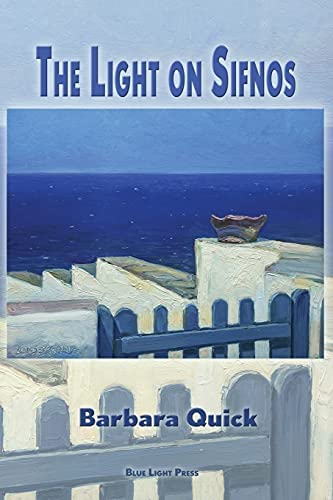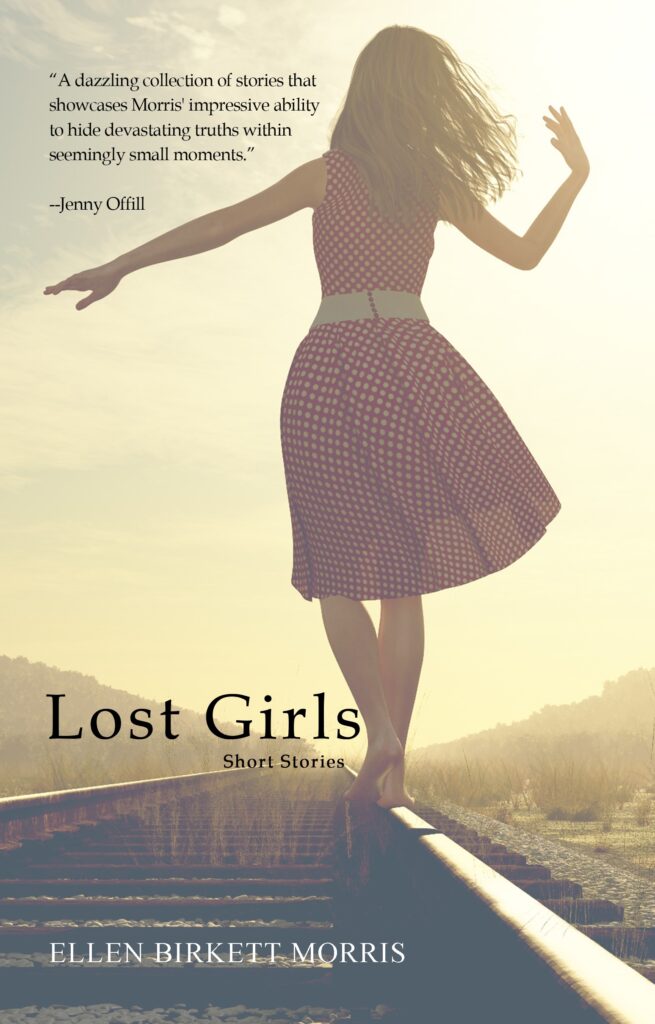Editor’s Note: This exchange is part of a series of brief interviews with emerging writers of recent or forthcoming books. If you enjoyed it, please visit other interviews in the I’ve Got Questions feature.
- What’s the title of your book? Fiction? Nonfiction? Poetry? Who is the publisher and what’s the publication date?
The Light on Sifnos
Winner of the 2020 Blue Light Press Poetry Prize
published by Blue Light Press/1st World Publishing (April 2021)
- In a couple of sentences, what’s the book about?
This is a chapbook comprised of 16 poems written during a three-week stay in 2019 on the Greek Island of Sifnos while reading Emily Wilson’s new translation of The Odyssey. In the words of poet George Bilgere, “The haunting power of this collection is not epic, but Sapphic: mysteries rising from a handful of fragments gleaming in the sun. Barbara Quick’s Sifnos is a place of elemental beauty, alive with the Attic past, peopled with the ghosts still living, still wandering with the other shades in the poet’s soul as she navigates her way (with her father’s old compass) through this world, ‘the future home of all we are and all we dream / in gleaming transit through the dark.’
One of the poems, “Skinny-Dipping in Vathy,” was recorded by Garrison Keillor and featured on The Writer’s Almanac.
- What’s the book’s genre (for fiction and nonfiction) or primary style (for poetry)?
To quote another of the six poets who blurbed the book, Lynn Knight, “Quick’s language is as lyrical as it is accessible.”
- What’s the nicest thing anyone has said about the book so far?
One reader who likes my novels wrote: “I got The Light on Sifnos from Amazon just now and devoured it like a hungry tourist at a taverna. You certainly make Sifnos seem a magical place, but then you have always had the gift of seeing the magic in life. Thank you!” He ended by saying that I am now his favorite poet. It doesn’t get any nicer than that!
- What book or books is yours comparable to or a cross between?
That’s a hard one! I guess that readers who like Mary Oliver’s poems, especially her earlier ones, might like mine. I’m best known as a novelist. (My 2007 novel from HarperCollins, Vivaldi’s Virgins, is still in print and has been translated into a dozen languages. My fourth novel, What Disappears, set in the world of the Ballets Russes, will be published in May 2022 by Regal House.) There’s a narrative arc in The Light on Sifnos. The poems work together to tell a story about being on the island, about its past and my past—about this magical place in the world that seems to be a magnet for ghosts.
- Why this book? Why now?
During lockdown, all of us have desperately needed ways to travel without risking our lives or risking other people’s lives. The Light on Sifnos provides a scenic pathway to an Aegean island where the “shadows are as deep as wells, the air as clear/as something newly born.” No passport or proof of vaccination required (although I do hope everyone will get vaccinated, for the good of everyone, asap!).
- Other than writing this book, what’s the best job you’ve ever had?
I’ve always been a writer—and I wouldn’t trade my job as a writer for any other job! Even when I’ve had other jobs (and I’ve had a lot of ’em, from editing and landscape gardening to being a private chef and running an international boardinghouse), I’ve never stopped being a writer for one single moment. I sometimes need to remind my friends, when they’re telling me a particularly evocative story from their own lives, “Remember who you’re talking to! I might have to use that someday.” Writing isn’t a job for me. It’s simply a matter of the way I’m wired. It has, throughout my life, been my salvation.
- What do you want readers to take away from the book?
I want readers to feel transported to this remote Greek island—to feel its beauty and its charms and its cragginess with all their senses. My best reward is when readers tell me my work has made them laugh and/or cry. My aspiration is to write both poetry and fiction as emotionally evocative as the best music—an arrow straight to the heart.
- What food and/or music do you associate with the book?
That’s an easy one! Revithada (Greek chickpea stew) cooked slowly in a clay vessel in a wood-burning oven, eggplant stuffed with ground lamb and pine-nuts and raisins, lovely little cold glasses of ouzo and a local liqueur distilled from rose geraniums. Seafood harvested from the waters lapping at one’s feet at one of the many beach-side tavernas in places too tiny to be called a village. Greek salad, of course, garnished with delicious olives and the local mizithra cheese. Strong little cups of espresso and anise cookies still warm from the oven. All to the strains of a bouzouki strummed by a master of the instrument singing harmony to the brilliant dark-eyed singer clad in red, who played the guitar. Everyone at the café (except us!) singing along with passionate feeling, till the wee hours of the morning, to songs about workers’ rights and lost love.
- What book(s) are you reading currently?
I have by my bed now What We Were Born For, poems by Emilie Lygren; Blood Memory, poems by Gail Newman; An American Sunrise, poems by Joy Harjo. I just finished a fascinating historical novel, Bride of the Buddha, by the religious scholar Barbara McHugh. And I’ve just ordered While Listening to the Enigma Variations: New and Selected Poems by Diane Frank.
Learn more about Barbara at her website.
Follow her on Facebook and Twitter.
Buy the book from Bookshop.org or Amazon.



